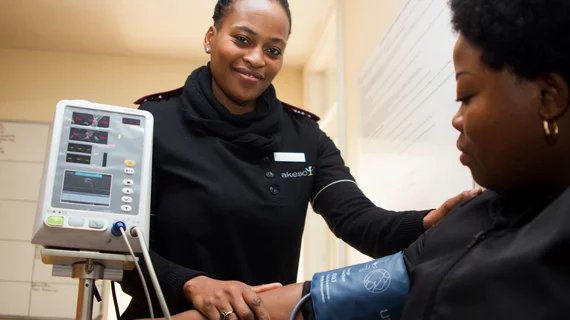Pandemic may give AI a chance to pass its long audition
It's established that AI can give diagnostic radiologists a “second set of eyes” on medical images. But most of the proofs have come in research settings. Less well-known is what the machine’s contribution might be to actual patient care.
The COVID crisis may close this experience gap. If it does, the success will owe much to algorithms training on the massive datasets from medical images—chest x-ray, CT and ultrasound—accruing daily around the world.
STAT reporter Casey Ross looks at the promise in an article posted July 27.
One of the cases he highlights involves a man who had his chest x-rayed for reasons having nothing to do with COVID. An algorithm flagged the exam—and sure enough. The man soon developed symptoms. He was admitted and, eventually, discharged home.
“We were much more proactive in hospitalizing him early,” Christopher Longhurst, MD, of UC-San Diego Health tells Ross. “We’ve seen a number of cases now where the AI is clearly influencing clinical management.”
Influential radiologist Bibb Allen, MD, says that, if the pandemic lingers, having AI to help triage cases “could be valuable. But we’ve got to build it first. That’s kind of where we are.”
Click here to read Ross’s full report.

